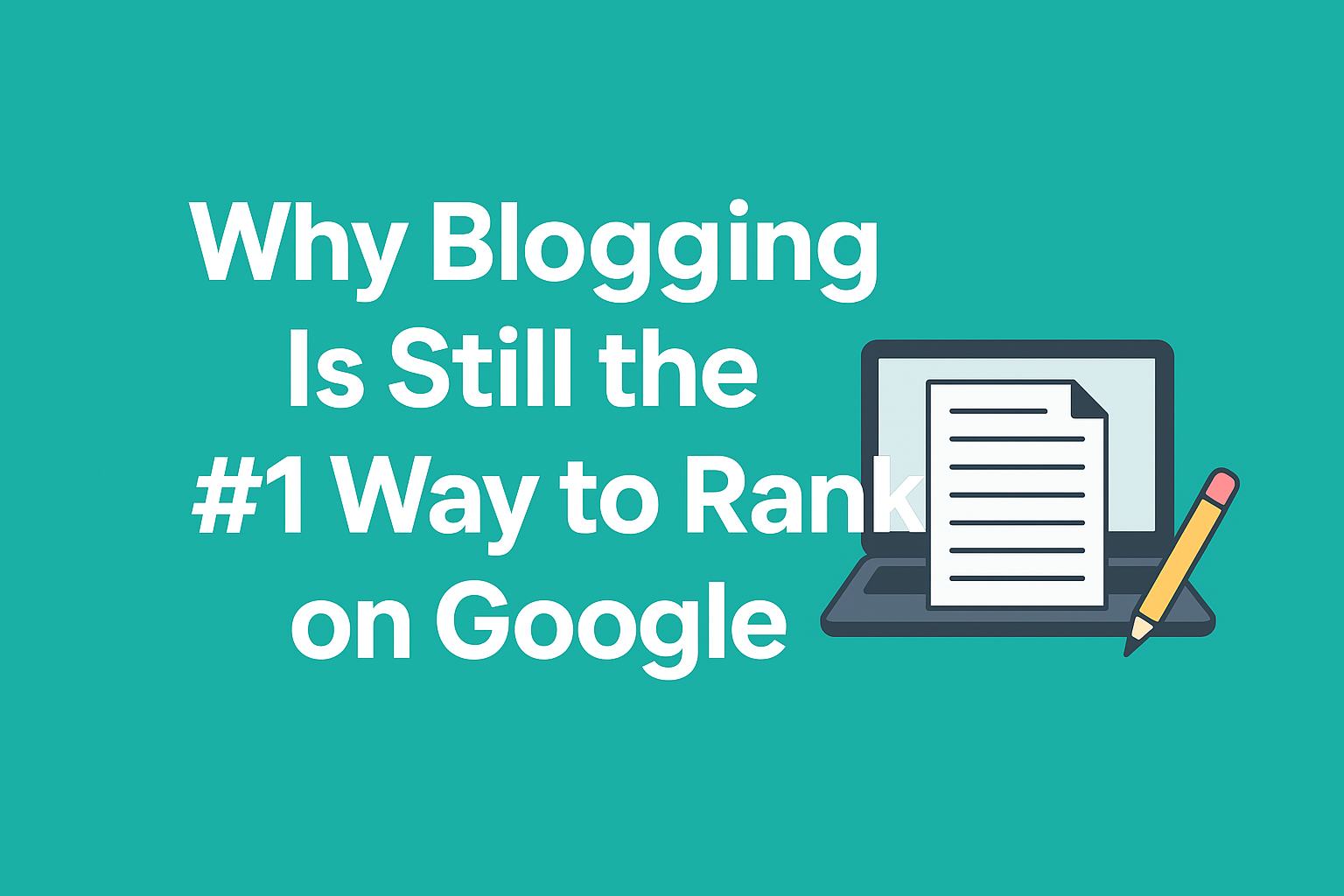Why Blogging Is Still the #1 Way to Rank on Google
In an era of AI-generated content, short-form videos, and fast-changing algorithms, one thing remains constant — blogging is still the #1 way to rank on Google. While social media trends come and go, blogs continue to deliver long-term SEO value, organic visibility, and authority building like no other medium.
Whether you’re a small business, a growing brand, or an established enterprise, blogging is the engine that drives your search rankings, traffic, and trust.
🟧 1. Blogging Builds Topical Authority
Google’s ranking algorithms reward websites that demonstrate expertise, experience, authority, and trust (E-E-A-T). A well-maintained blog gives you the perfect platform to show this.
By publishing consistent, high-quality posts around your niche, you help Google understand what your website is about and that you are a credible source. Over time, this builds topical authority, which directly improves your position in search results.
Example: A digital marketing agency posting weekly SEO tips will rank higher for SEO-related queries than one without a blog.
🟦 2. Blogs Drive Consistent Organic Traffic
Every new blog post you publish is an additional indexed page on Google — another opportunity to appear in search results.
Unlike ads, which stop generating clicks when the budget runs out, blogs bring ongoing traffic for months (or even years) after publication.
For example, a blog post optimized for “best content marketing strategies” can continuously attract visitors looking for that topic — creating a steady stream of organic traffic without spending a rupee on ads.
🟪 3. Blogging Targets Long-Tail Keywords Effectively
Modern SEO isn’t about competing for short, high-volume keywords. It’s about dominating long-tail keywords that reflect user intent.
Blog posts are the best way to naturally include these long-tail terms and answer user-specific queries.
For example, instead of only targeting “digital marketing,” you can create blogs around:
-
“How to build a digital marketing strategy for small businesses”
-
“Top digital marketing trends in 2025”
These long-tail keywords have less competition, higher intent, and better conversion rates — giving your website an SEO edge.
🟥 4. Blogs Encourage Backlinks and Engagement
Backlinks remain one of the strongest Google ranking factors. But people only link to content that provides value — and blogs are the perfect linkable assets.
When your blog posts are informative, research-driven, or offer unique insights, other websites naturally link to them. These backlinks act as “votes of confidence,” boosting your domain authority and helping your other pages rank higher too.
Plus, blogs encourage user engagement through comments, shares, and internal linking — all of which signal to Google that your content is valuable.
🟫 5. Blogs Keep Your Website Fresh and Updated
Google favors websites that stay active. A regularly updated blog tells search engines that your site is alive and relevant.
When you refresh old posts with new data, add visuals, and optimize for updated keywords, your content remains current and competitive — improving crawl frequency and maintaining top rankings.
🟩 Conclusion
Despite new trends and evolving SEO tools, blogging continues to be the backbone of organic growth. It not only enhances visibility and authority but also strengthens the connection between your brand and audience.
If your goal is to rank higher on Google, drive consistent organic traffic, and build long-term credibility, blogging isn’t optional — it’s essential.
Start today. Write valuable content. Optimize it smartly.
Because even in 2025, blogging is still the #1 way to rank on Google.
.






